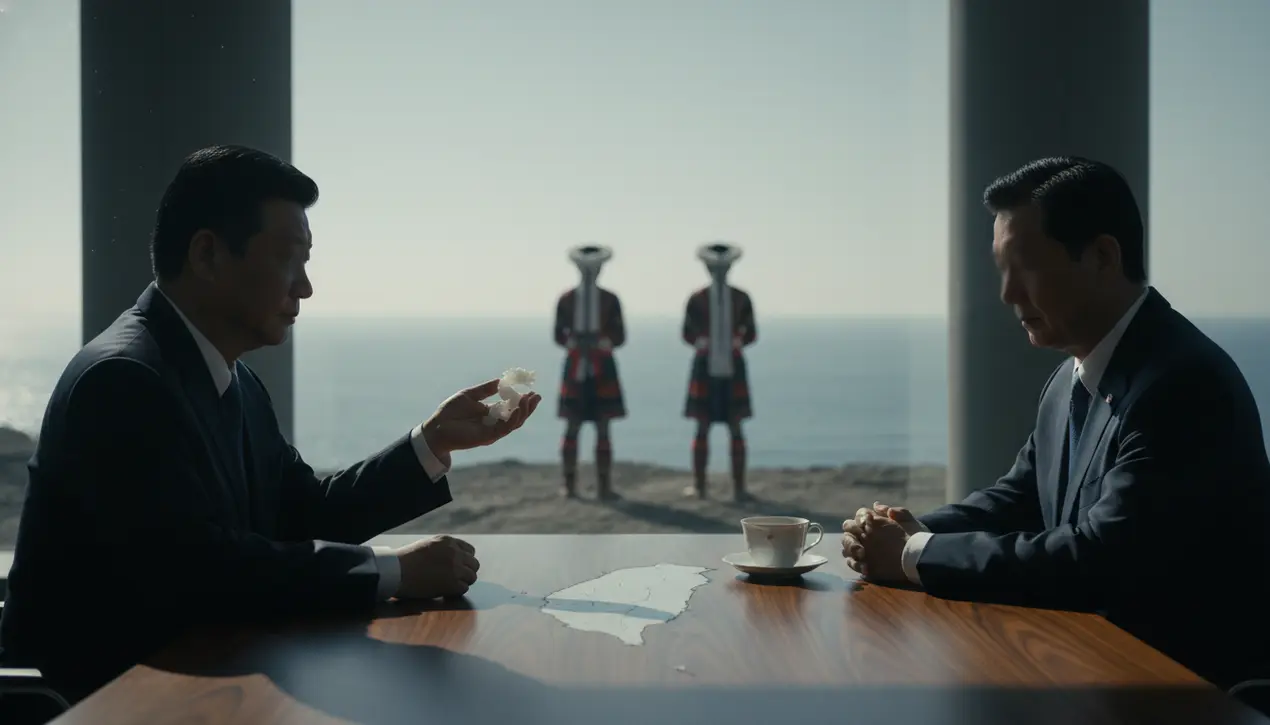
PoliticsdiplomacyBilateral Relations
Great-Power Pragmatism Reshapes Taiwan's Future
RO
Robert Hayes
2 hours ago7 min read
The recent meeting in Busan between Chinese President Xi Jinping and US President Donald Trump, which spanned nearly two hours and focused intently on trade, rare earths, and fentanyl, carried a profound subtext in its conspicuous omission: Taiwan was not formally on the agenda. This strategic silence, far from an oversight, represents a calculated shift toward great-power pragmatism, a modern echo of the spheres-of-influence diplomacy that characterized much of 19th and 20th-century statecraft.For seasoned observers of international relations, this development is less surprising than it is sobering; it signals a mutual, albeit unspoken, understanding between Washington and Beijing that managing their intensifying rivalry takes precedence over ideological posturing on the Taiwan issue, effectively narrowing the island's strategic autonomy. Historically, such tacit arrangements have often preserved a tense peace at the expense of smaller powers caught between behemoths, reminiscent of the way Poland was partitioned in the 18th century or how Cold War dynamics often relegated regional allies to pawns in a larger geopolitical game.The core of this new understanding rests on a simple, brutal calculus: for China, Taiwan represents an irreducible core interest, a matter of national sovereignty and historical grievance where compromise is politically unthinkable, while for the United States, the island is a critical strategic asset in its Indo-Pacific strategy to counter Chinese hegemony. The absence of public confrontation over Taiwan in Busan suggests both leaders are opting for a managed competition, seeking to compartmentalize the most explosive flashpoint to avoid a direct military conflict that would be catastrophic for the global economy and international stability.However, this pragmatic management comes with significant consequences for Taiwan itself. It finds its diplomatic space increasingly constricted, its ability to leverage US-China friction diminished, and its future increasingly subject to decisions made in Washington and Beijing rather than Taipei.Expert commentary from figures like Dr. Evelyn Shaw of the Global Security Institute warns that while this reduces immediate risks, it creates a long-term 'strategic drift,' where Taiwan's status quo is slowly eroded through economic and political pressure, making a military solution more, not less, likely down the line if red lines become blurred.The potential ramifications extend globally, affecting semiconductor supply chains, freedom of navigation in the South China Sea, and the fundamental structure of the US-led alliance system in Asia. In essence, the quiet understanding in Busan is not a resolution but a postponement, a decision by the world's two dominant powers to kick the can of Taiwan's ultimate status down the road, a maneuver that offers temporary stability at the potential cost of a more volatile and predetermined future for the 23 million people on the island.
#US-China relations
#Taiwan
#great-power rivalry
#diplomacy
#geopolitics
#featured
Stay Informed. Act Smarter.
Get weekly highlights, major headlines, and expert insights — then put your knowledge to work in our live prediction markets.
Related News
Comments
Loading comments...
© 2025 Outpoll Service LTD. All rights reserved.